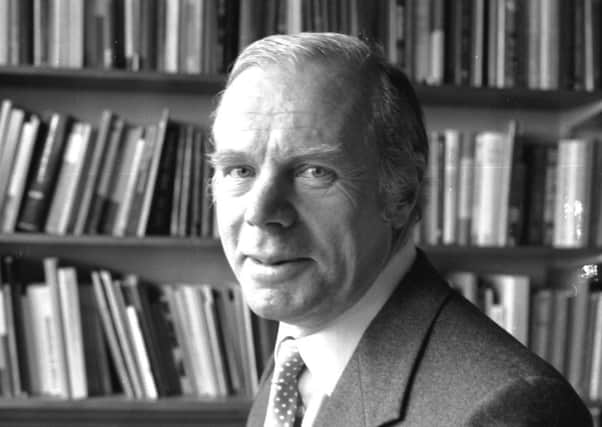Appreciation: Prof Michael Oliver, cardiologist


Michael Oliver was one of the most eminent cardiovascular researchers of his era. His work was most notably concerned with the relationship between diet, cholesterol and coronary heart disease and he led early trials into cholesterol-lowering drugs.
Determined to be a cardiologist at the University of Edinburgh he began a lifelong enquiry into the causes of coronary heart disease in 1950s. He gained a first in biochemistry and physiology as an undergraduate.
Advertisement
Hide AdAdvertisement
Hide AdRather than spending time in national service he spent two years in general practice in Leith, Edinburgh, which he considered a salutary and uniquely important experience during which he “learnt” to be a doctor and practice clinical medicine.
After leaving general practice he soon obtained a junior fellowship in the Departments of Biochemistry and Medicine at Edinburgh University.
He began a series of publications from 1953 delineating the physiological nature of cholesterol and lipoproteins and their role in endocrine and heart diseases. He was among the first to report in 1954 that raised cholesterol and coronary heart disease were associated.
This pioneering work and original observation led to a gold medal MD thesis and international recognition.
He was a highly influential leader in controlled trials analysing the effects of lowering raised cholesterol levels. While the results showed the incidence of myocardial infarction was reduced, there was an increase in non-cardiovascular mortality.
This equivocal result set back international research for 15 years. He had one completely original idea that a surge of stored fat occurs during the onset of an acute coronary attack and may lead to sudden cardiac death in the first six to eight hours.
This envisioning work was first published in 1966 and remains extant.
In the 1970s he expanded his interests in metabolism of fatty acids, insulin and antioxidants. This led him to close contact with peers in Sweden and in 1980 he was awarded an honorary MD by the Karolinska University, Stockholm.
Advertisement
Hide AdAdvertisement
Hide AdHis internationally renowned research also led to the award of an honorary MD at the University of Bologna in 1985.
In 1964 he established the first intensive coronary care unit in Europe at the Royal Infirmary Edinburgh and in 1974 was appointed a personal chair and awarded the Duke of Edinburgh Chair of Cardiology in 1976.
Perhaps his greatest enduring legacy was the foundation of the academic department of cardiovascular medicine in Edinburgh which today is arguably the UK’s most prominent and influential clinical research department into heart disease.
Michael Oliver was always a university man and practised clinical medicine and cardiology within the NHS. He never had a private practice. He was a popular lecturer and was encouraging and supportive of young medical scientists. He was the author of more than 400 scientific papers between 1953 and 2015. He was awarded a CBE in 1985 and FRSE in 1988. He took office as president of the Royal College of Physicians between 1986 and 1989 where his portrait by Victoria Crowe hangs.
He retired from Edinburgh University in 1989 and moved to London as director of the Wynn Institute for Metabolic Research and joined the National Heart and Lung Institute. He never really retired and was always greatly intrigued and influential in his enthusiasm for cardiac research.
He often remarked on how comforting it was to have a profession, passion and hobby which were the same. Indeed, a comprehensive review of the relationship between free fatty acids, cholesterol and heart disease was published earlier this year. Also this year, the Michael Oliver Theatre was named by Glasgow University, recognising his contribution to medical research; he attended the opening.
Educated at Marlborough and brought up in Hampshire to an old English family in the country, he found it difficult to adjust to urban life in Edinburgh but bought an 18th-century house set in three acres which he considered one of the joys of his life. His life was not always easy, with the death of his eldest son and the breakdown of his first marriage.
He had three sons and a daughter by his first marriage to Margaret Abbey. In 1985 he married Helen Daniel, who predeceased him.
Advertisement
Hide AdAdvertisement
Hide AdMichael Oliver was a remarkable and engaging man. He was stimulating company and always full of charm. His forthrightness was renowned and one of his admirable qualities.
In his “retirement” he transferred his desire for knowledge into art history and became very knowledgeable in Italian Renaissance art.
He lived in Umbria happily for 30 years, entertaining and living a full life. He had a very close relationship with his five grandchildren and frequently said that his two surviving sons were his best friends.